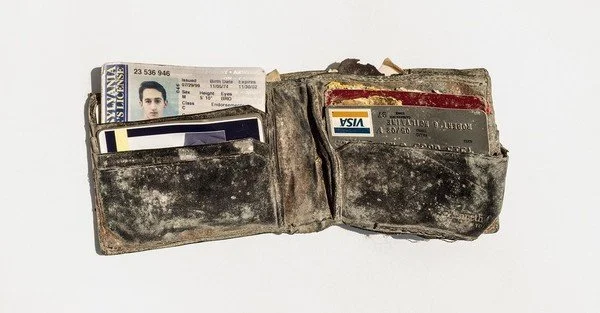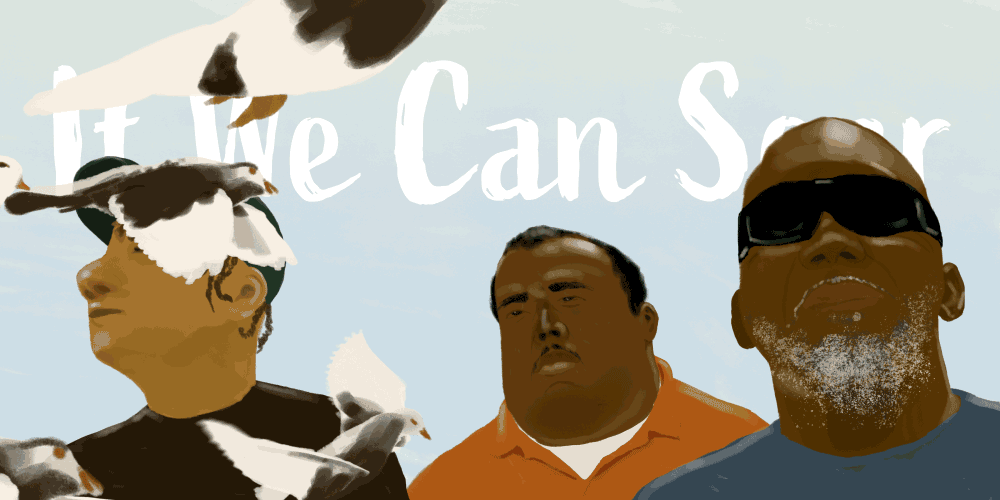Welcome back to The Highlighter, and thank you for opening today’s issue! I’ve been hearing from many of you that you are enjoying how I’m experimenting with the format of the newsletter. One trend lately is that I’m paying closer attention to how articles talk to each other, trying to bring them together when it makes sense. Today’s issue, which focuses on the theme of grief, includes four outstanding pieces that explore the various ways we come to terms with losing someone we love.
It’s hard to pick which article I’d urge you to read first. They’re all excellent. But I chose “One Family’s Struggle To Make Sense of 9/11” to lead this week’s issue because it’s a beautiful piece of writing. No matter how many articles you’ve read about 9/11, this one is different, and very powerful.
The rest of today’s newsletter is solid, too, with articles on grief as it intersects with artificial intelligence, social movements, and sibling relationships. Please enjoy!
+ Are you a teacher? (I know many of you are!) If so, I’d appreciate it if you shared The Highlighter with your colleagues as we begin the new school year. Thank you very much!
One Family’s Struggle To Make Sense of 9/11
Bobby McIlvaine was 26 years old when he died on September 11, 2001. He had a mom and a dad, a brother, and a girlfriend he loved deeply. He kept a diary and wrote drafts of novels on yellow legal pads. He was a dreamer, a charmer – ambitious but moody, ruminative and philosophical.
In this tender story, brilliantly told, Jennifer Senior captures the different ways that Bobby’s loved ones have mourned and made sense of his death. As we know about grief, each person has made their own path. “We are always inventing and reinventing the dead,” Ms. Senior writes. But at some point, she adds, “The dead abandon you; then, with the passage of time, you abandon the dead.” (58 min)
Love And Loss In The Age Of A.I.
Eight years after his fiancée Jessica died from a rare liver disease, 33-year-old Joshua Barbeau, still could not escape his anxiety and depression. The loss was too much to bear. So when he discovered Project December, a website that uses GPT-3 to manipulate human language, Joshua had to decide: Did he want to communicate with an A.I. version of Jessica, one that could replicate her style of speech, one that approximated her personality? Why, of course he did. (50 min)
+ Journalist Jason Fagone also wrote “The Lottery Hackers,” one of my favorite articles of 2018. He joined Article Club last July.
Grief Belongs In Social Movements. Can We Embrace It?
Malkia Devich-Cyril: “Death is a natural part of every life cycle. Our bodies will die. Our organizations will die. Our movements will die. Likewise, the specific conditions that oppress our families and communities will also come to an end. Endings are not to blame. Loss is simply an element of change. Change is the heartbeat of social movement. But, on either side of change is loss. Reimagining the world requires that we release the parts of the system and ways of being that are ready to die, and mourn the destructive losses that we could not control, despite our best efforts. Something is dying, and we are desperate for something new to be born.” (14 min)
My Brother’s Dinner With The President Of Sears
“It’s hard for me to admit that I didn’t really know my brother,” Marc Inman writes in this poignant essay. What begins as a playful account of growing up with a prevaricating older sibling grows darker as we learn about Jon’s mounting struggles of faith and sexuality and his capacity to inflict pain on his younger brother. Even still, Marc maintains empathy for Jon, hoping that they can rebuild their relationship – until it is too late. (22 min)
Thank you for reading this week’s issue of The Highlighter. Did you enjoy it? Let me know by clicking on “Yes” or ”No” below. I like hearing from you.
If you like The Highlighter, please help it grow. I appreciate your support. Here are a few ways you can help:
Encourage a friend to subscribe by forwarding them today’s issue
Keep my reading stamina up by buying me a coffee (or 5, like Tony)
Go all in and become a VIP, like Michele, who is wonderful
On the other hand, if you no longer want to receive this newsletter, please unsubscribe. See you next Thursday at 9:10 am PT!









